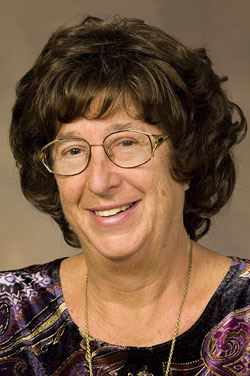 Advances in medicine are taking place at a staggering pace, and what was considered basic science only yesterday is now part of everyday clinical practice. To enrich medical student education beyond classroom lectures and ward and clinic clerkships, and to foster a closer relationship with faculty mentors, The University of Arizona College of Medicine sponsors a long-standing Medical Student Research Program (MSRP) and an innovative Curriculum on Medical Ignorance (CMI).
Advances in medicine are taking place at a staggering pace, and what was considered basic science only yesterday is now part of everyday clinical practice. To enrich medical student education beyond classroom lectures and ward and clinic clerkships, and to foster a closer relationship with faculty mentors, The University of Arizona College of Medicine sponsors a long-standing Medical Student Research Program (MSRP) and an innovative Curriculum on Medical Ignorance (CMI).
Student research fellows gain familiarity with biologic horizons in both basic and clinical science, acquire a broad grasp of research skills, learn to communicate ideas better, refine clinical problem identification and solving, meet distinguished visiting physicians and scientists, and work closely with faculty and other students at various levels in diverse laboratory and patient care settings both at The University of Arizona and other institutions throughout the world.
Since 1981, approximately 1000 medical students have been awarded either short-term fellowships during vacation periods or extended full-time research experiences for one or more years including, for some, acquiring joint MD/PhD or other combined degrees. Many MSRP students, who have also presented and published their work and received prestigious prizes and awards, now enjoy productive careers in academic medicine or leadership positions in clinical practice. The vast majority indicate that the research experience was one of the most enjoyable and productive activities during their medical training and one which often influenced the ultimate choice of career or specialty. We are currently expanding opportunities for all students to participate in MSRP and receive greater recognition for their research efforts.
As the 21st century begins, medical students will enter and pursue a career in medicine while rapid changes are ongoing in the health care scene, and political and social events are shaping an unpredictable future. Whereas the role of managed care, single payer, and various other health care delivery systems and the relative influence of primary care practitioners and specialists in these systems and their impact on patients remain unresolved, one thing is for sure:
Future advances in medicine and improvement in patient care will depend on research advances in molecular and clinical medicine that take place today and the ability of the medical profession to assimilate these ideas and technologies and distribute them equitably to all patients.
Thus, the more students participate firsthand in the quest for new ideas, both inside and outside the classroom, the greater will be their breadth and depth of understanding and the better their position to participate in and influence directly the future course of medicine and to help sick patients no matter which branch of medicine or balance of research-teaching-practice they choose for their career.

